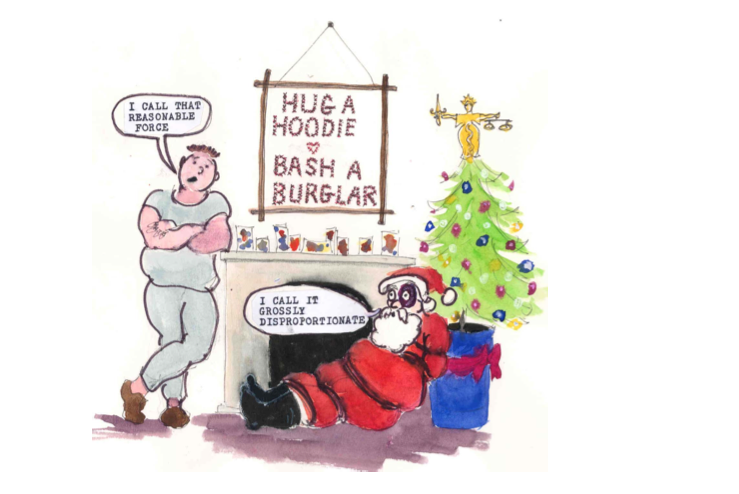The Innocence Network UK (INUK) has recently called for reform of the Criminal Cases Review Commission (CCRC). At the same time, some campaigners are considering whether abolition of the CCRC is now warranted.
Here, we consider these potentially competing calls from the perspective of Cardiff University’s Innocence Project. Our overriding concern is that any campaign for change should be as unified as possible. Furthermore, if that campaign is to be strategic, coherent and hope to achieve real and lasting positive change, then it must in some way confront the fundamental problem of the Court of Appeal’s approach and its continuing dominance of the post-conviction domain. Without this, then neither reform nor abolition of the CCRC would provide a real solution.
Innocence projects: a potted history
Innocence projects in the UK are generally where university students work pro bono (free) on cases of people maintaining innocence (a core requirement) of a serious criminal offence, who have generally exhausted the appeals process. Supervised by academic staff and practising lawyers, they do not replace the role of solicitors and legal aid, but help out where there is little alternative assistance. Usually the aim is to find new evidence or argument and submit an application to the CCRC, the body set up to consider such cases. The first UK innocence project was set up at Bristol in January 2005, closely followed by Cardiff and Leeds in September 2005.
INUK
Now ‘Educating to overturn and prevent the wrongful conviction of innocent people’, the INUK was launched in 2004 by Dr Michael Naughton at Bristol University, to facilitate research and casework assistance, and refers ‘eligible’ cases to member universities. There are currently 26 university members, and one commercial law firm member innocence project.
The INUK has received over 1,000 letters from prisoners, assessed about 200 of these as eligible for innocence project assistance, distributed 102 to its member universities, and has 97 eligible cases on its waiting list.
Cardiff and non-INUK innocence projects
In its early days, Cardiff was a member of the INUK (2005-2010) and worked jointly towards INUK’s initial development, but is no longer a member.
As well as Cardiff, there are a handful of non-INUK projects – notably the London Innocence Project (run by barristers), and those at Leeds and Westminster universities. Other organisations also undertake free criminal appeals casework – for example, InsideJustice, the miscarriage of justice unit at Inside Time, whilst the newly-formed Centre for Criminal Appeals plans to offer a potentially new holistic not-for-profit approach.
So, with this flurry of innocence project activity since 2005, what has been the result of these casework referrals? Sadly, if ‘success’ is judged by successful submissions to the CCRC or Court of Appeal – in other words, cases overturned – the stark reality is that innocence projects aren’t yet delivering.
Two INUK cases have been heard, and rejected by the Court of Appeal. Significantly for us, of the INUK’s nine submissions currently under review at the CCRC, our understanding is that six of those are Cardiff’s submissions, and two are Bristol’s, although this detail is not publicly available. We do not have statistics of any CCRC submissions from non-INUK projects.
Of these six Cardiff cases, the CCRC is still reviewing three, one is in the CCRC ‘queue’, and two have recently been declined for referral to the CA, after a ‘full’ CCRC review. Client confidentiality at this critical stage prevents us elaborating, but their story will feature in The Cardiff Six?, to be published in late 2012. We fear that other universities will face the same rejection unless things change, fuelling our concerns for the future of this worthy educational/social justice movement.
Why such low CCRC submission numbers?
Innocence projects are still relatively new, and tend to be a last port of call for cases that have already failed at the CCRC/CA, plus we face the gargantuan hurdles of our appeals system, and we have no powers to access evidence. But it’s also, we think, because the current model of a typical university innocence project does not lend itself to regular/prolonged casework success. The smaller number of university innocence projects that appear to be making progress are those where an experienced legal practitioner leads the project, and/or where there is a key experienced person providing essential overview, depth of understanding and continuity. It may be that a more sustainable innocence project model, medium term, may emerge involving partnerships with organisations such as the Centre for Criminal Appeals and/or between commercial law firms and universities, such as a version of the White & Case law firm INUK project.
Academic staff generally lack time (and sometimes expertise) to run an innocence project and make casework progress. The key difference between the UK and projects in the USA is an almost total lack of core funding here. The student population is transient, and there are only about 20 weeks of the year when students are active on casework. Even then, they face multiple demands on their time – study, part-time jobs – coupled with simple lack of experience of mass evidence sifting and the complexities of investigative and legal procedures. It is perhaps entirely understandable that, faced with sometimes years of painstaking work before having even a glimpse of a CCRC submission, universities may, on reflection, want to divert scarce resources into something with a quicker turnaround, but arguably equally valuable educational experience. We understand that view – at Cardiff, we currently have six other pro bono ventures that are infinitely easier to manage, provide quicker ‘results’, and do not require the uniquely problematic long-term commitment of innocence projects, although the latter remains hugely attractive to our students.
Another measure of success
Although students need a huge amount of guidance, they can be valuable foot soldiers given specific tasks. Importantly, university innocence projects can usefully work with campaign and support groups for mutual benefit, as Cardiff does with South Wales Against Wrongful Conviction, and now Sheffield with INNOCENT/Andrew Green. Plus universities can contribute uniquely as academic/establishment partners with unrivalled access to accompanying resources.
So the ‘success’ of the university innocence project movement needs to be judged more widely than simply by casework success: through wider education, research and social impact.
Current reform/abolition of the CCRC calls
We consider that reform of the CCRC and related legislation is not just desirable, but essential – without it, the ‘innocence project movement’ will inevitably retract as universities move out of innocence and into ‘easier’ forms of pro bono casework for their students. That would be a devastating loss all round – for potentially innocent people, and a lost opportunity to educate our future lawyers.
However, all of this needs to be considered at the same time as discussing fundamental problems with the Court of Appeal’s approach: without addressing head-on these problems, reform of the CCRC will be meaningless.
The Court of Appeal needs to consider potential miscarriages of justice rather than rigid rules, and to abandon the absurd notion of jury infallibility and the grossly unfair requirement for “new” evidence or argument: in many cases, the evidence needed was there all along and artificiality in excluding this no doubt serves justice badly.
The current climate
New organisations are being set up, heralding renewed energy and interest in the recently unfashionable miscarriages of justice arena. The embryonic Centre for Criminal Appeals has an admirable mission statement. InsideJustice at Inside Time is making sterling progress showcasing the issue for television audiences following the demise of Rough Justice and others. JENGba (Joint Enterprise Not Guilty By Association) has made real progress by opening up the reality of another unpalatable application of the law that yields bizarre results.
Based in a Russell Group university law school, and as part of ‘the establishment’, we understand that there is a natural reluctance in the legal and political world to look more closely at ‘the Court of Appeal issue’. But reform discussion needs to go beyond putting the CCRC under the microscope: its hands are in many aspects tied by restrictive legislation that needs change. The vision of the Royal Commission in creating the CCRC was to provide a real solution to the scandal of wrongful conviction. That vision can never be achieved while the CCRC remains straight-jacketed by the power and largely unchanging attitude of the Court of Appeal. The CCRC is controlled by the very body whose failure to deal with the problem was epitomised in the infamous cases that provoked the 1993 Royal Commission.
It’s clearly not right that an innocent person should pay for the consequences of human error or omission, to avoid upsetting the applecart that is ‘the system’. ‘Beyond reasonable doubt’ simply goes out of the window after a conviction, and we don’t think that the general public appreciates this, or its consequences for innocent people. But UK students are becoming increasingly aware of this, thanks to innocence projects.
University innocence projects can, for now, add little by way of actual casework evidence to illustrate ‘the problem’. But some of us are further down the road than others, and we hope that our views, and those of a wider stakeholder group, will be invited in a meaningful way, and that our calls for wider collaboration and communication to give reform initiatives a fighting chance will not fall on deaf ears.
This article was written by Julie Price and Dr Dennis Eady of Cardiff Law School Innocence Project.





